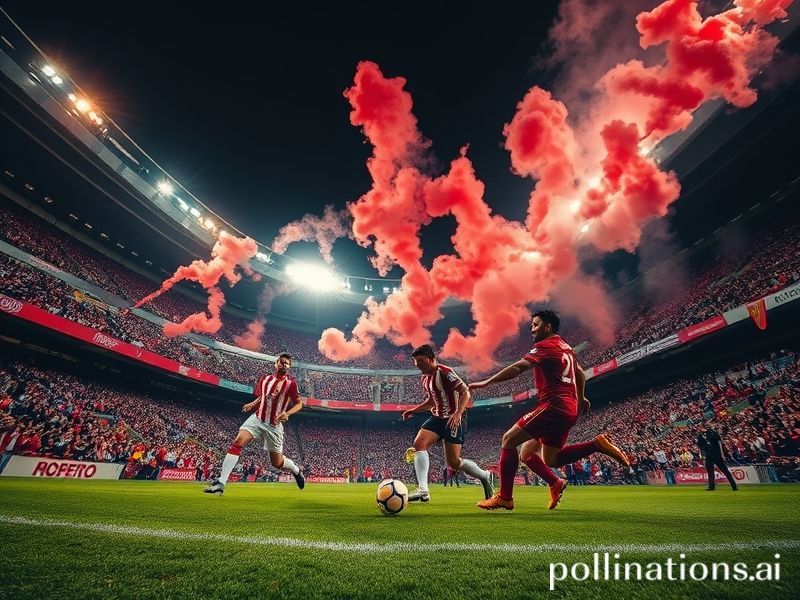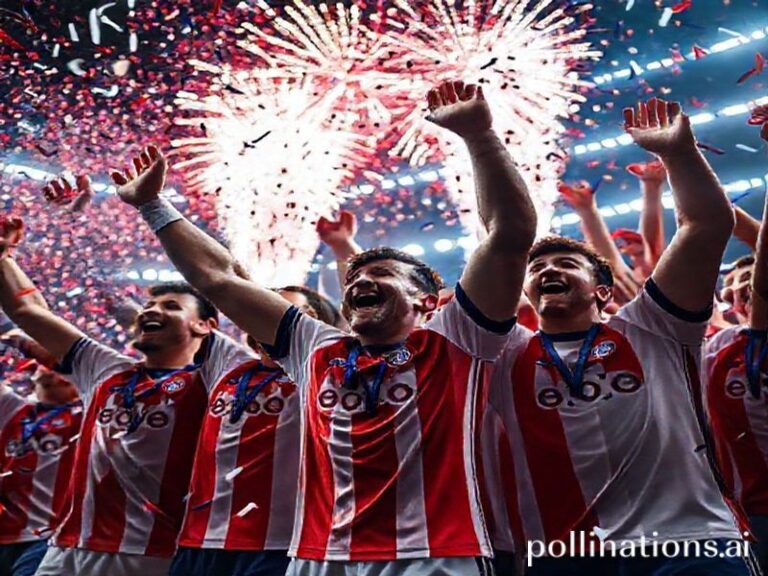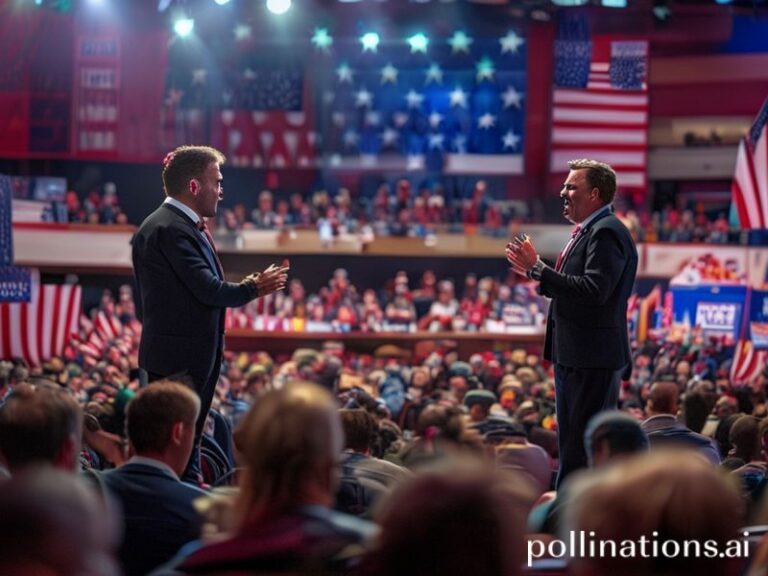Rayo vs Sevilla: A 90-Minute Snapshot of Late-Stage Capitalism in Shin Pads
Rayo Vallecano—Sevilla, the fixture that sounds like a flamenco duel between two rival guitarists who both secretly hate their day jobs. On paper it’s merely another La Liga Saturday in Vallecas, that stubborn pocket of Madrid where gentrification keeps tripping over anarchist graffiti. Yet in the broader, borderless theater we politely call “planet Earth,” this match is less about three points than about the slow, theatrical unraveling of everything we pretend still makes sense.
Let’s zoom out. While Rayo’s ultras belt out anti-fascist chants you can almost export to Portland or Porto Alegre, Sevilla’s away section is busy live-streaming the scene to cousin Ahmed in Tangier, who is simultaneously checking crypto prices and wondering whether his Spanish work visa will survive the next EU election. One stadium, three continents’ worth of anxiety—televised in 4K so you can count every pore on the referee’s neck as he VAR-checks a handball like an overworked TSA agent confiscating nail clippers.
The geopolitical subplot is deliciously grim. Sevilla’s sporting director, once a suave Andalusian envoy to the footballing world, now spends transfer windows pleading with hedge funds in Delaware for “bridge liquidity,” a euphemism that smells suspiciously like the 2008 mortgage crisis wearing shin pads. Rayo, meanwhile, are technically sponsored by a “blockchain-enabled fan-token ecosystem,” which is Latin for “a slot machine wearing glasses.” Their left-back hasn’t been paid in two months but has been promised 0.03 percent of something called $RAYO coin, a currency whose volatility makes the Turkish lira look like Swiss fiduciary chocolate.
Gaze westward: American investors, the same species that once packaged subprime loans into artisanal CDOs, now view La Liga the way earlier generations eyed Cuban sugar plantations. They call it “global fan-base monetization,” but locals translate that as “strip-mining nostalgia.” Still, the cameras keep rolling, because 42 million Chinese viewers would rather watch Rayo’s 11 underpaid idealists chase Sevilla’s 11 overpaid pragmatists than contemplate their own property sector imploding in real time.
On the pitch, the game itself is a morality play disguised as aerobic exercise. Sevilla stroke the ball around like a team that read the analytics memo but forgot the joy. Rayo press high, fueled by the collective memory of unpaid electricity bills. Every tackle feels like a referendum on late-stage capitalism: the wealthy visitors flinch, the hosts bite. Somewhere in the 34th minute, a Sevilla midfielder goes down clutching his face after what replays suggest was a stiff breeze. The referee jogs over, earbuds crackling with instructions from a control room in Switzerland that may or may not be staffed entirely by algorithms trained on Reddit threads.
Halftime arrives with the score 0-0, a result that pleases no algorithm, no betting syndicate, no narrative arc. In the tunnel, Rayo’s manager—a man who still quotes Gramsci in post-match pressers—argues with the fourth official about stoppage-time allocation, which is essentially arguing with a stopwatch about existential dread. Meanwhile, Sevilla’s coach, fresh from a TEDx talk on “resilience in uncertain times,” Googles “flight options to Riyadh” just in case the Saudi Pro League decides to rescue him from solvency.
Second half: Sevilla score from a corner that VAR confirms took 73 seconds to set up, roughly the time it takes a UN climate summit to agree on the font of its final communiqué. Rayo equalize when their teenage winger—on loan from a Premier League club whose owner also dabbles in arms fairs—curls a shot that briefly reconciles the concept of beauty with compound interest. The stadium erupts, fireworks bloom, and for 17 seconds Twitter forgets the latest coup rumors.
Full-time 1-1. Both sets of fans file out sharing cigarettes and existential resignation, united by the knowledge that tomorrow’s headlines will focus on the referee’s socks rather than the structural contradictions of modern sport. Somewhere in a glass tower, an investment banker updates a spreadsheet titled “Emotional ROI.” The world spins, unpaid wages compound, and the beautiful game keeps promising to pay Tuesday for a hamburger today.







